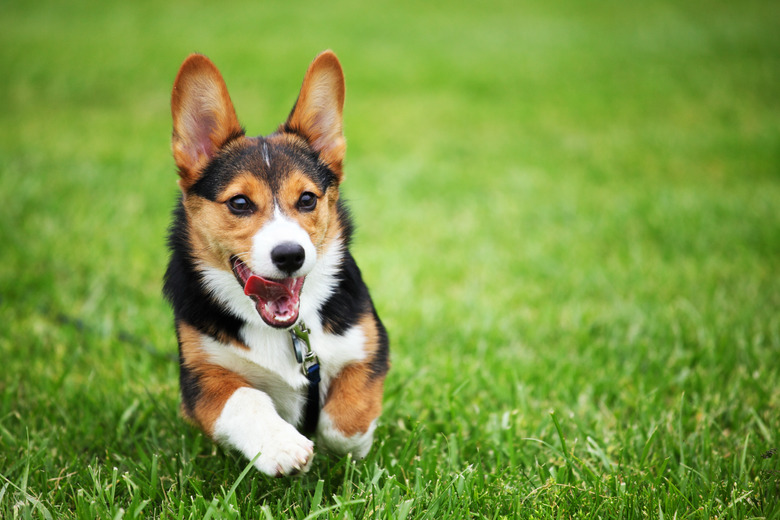Do Dogs Know Their Names?
When you first brought your dog home, you had the perfect name picked out for him. It wasn't cliché, it was unique, it was creative, and it really captured his cute little personality.
Over time, you think your dog learned his name. He comes to you when you call his name, after all. But could he be responding to the tone of your voice, or the sound of his leash, or the noise that treat bag makes when you open it instead?
You're wondering if dogs recognize their own names, and why. You believe that learning whether or not your dog knows his name will help you be a better owner and understand him more.
Do dogs really know their name?
Do dogs really know their
name?
While dogs are intelligent creatures, and they know about 165 words on average, they don't really know that they are Sparky or Fido.
Instead, they recognize how words sound. Your dog won't hear his name, put two and two together and think, "My name is Sparky," but he will respond to how "Sparky" sounds. He will interpret the sound as a command. When you say "Sparky," he'll know to come to you.
Your dog may not understand his name as soon as he comes home with you. If he's a new puppy you're naming for the first time or an older dog you're renaming, you can use training to get him to understand when you're calling for him.
How to teach a dog their name
How to teach a dog their
name
When teaching a dog their name, make sure you only use positive reinforcement. Dogs do not respond well to negative reinforcement or punishment. They may just be scared of you and exhibit bad behaviors if you yell at them or scold them repeatedly.
To teach your dog his name, say his name, and when he looks at you, give him a high value treat for positive reinforcement. When they look away, repeat this process. Do this three to five times in a row, many times a day, and your dog will begin to recognize his name.
Your dog will respond better to hard sounds like T and R rather than vowels or soft consonants like F or S. Therefore, you may want to name him Tim rather than Timothy or Rover instead of Sal.
Your dog will also have an easier time if you say his name by itself, as opposed to saying, "Sparky, come here!" When you want his attention, simply say, "Sparky!"
How long does it take for a dog to learn their name?
How long does it take for a
dog to learn their name?
As we covered above, dogs don't really know that their name is Sparky, but rather, respond to the sounds as a command. That said, if you are consistent about teaching a dog his name over the course of a two-week period, he should be able to learn it in within two days after that training period. However, it may vary based upon how consistent you are with your training. Make sure to always repeat the process with positive reinforcement if you want to get it right.
Your dog's age and breed could also play into how long it takes. Puppies learn faster than older dogs, and some breeds, such as herding and working breeds, may be faster to respond to training.
What else do dogs respond to?
What else do dogs respond
to?
Puppies are learning new things constantly. They learn by listening to the tone of your voice, for instance.
If you speak to him in a high volume and a high pitch, he will know that you are proud of him and he'll become excited. If you speak to him in a low pitch and volume, your dog may realize he's done something wrong. He may lower his tail and head. If you speak to him in a low volume and high pitch, it's going to reassure and comfort him.
Dogs also understand some human body language. For example, if you stand over your dog, he may see you as threatening or being in control; stand sideways to show that you are not a threat. You should always approach your dog slowly and calmly, especially at first while he's still learning.
Conclusion
Conclusion
Dogs may not know that a certain word is their actual name, but they will respond to it if you properly train them with positive reinforcement. Repeat your dog's name, offer him a treat, and be consistent about it. In no time, he should recognize his name when you call him.


